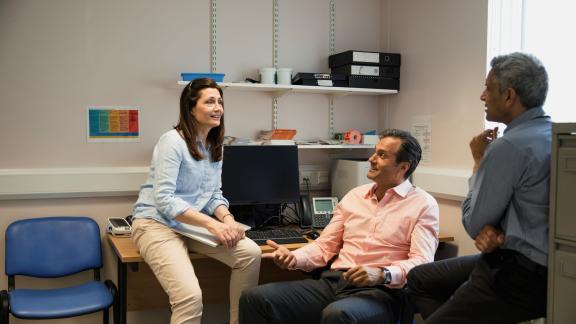Integration and innovation: what the white paper means for primary care

The white paper published on 11 February by the Department of Health and Social Care, outlines proposals for a Health and Care Bill that will deliver more joined-up care, less legal bureaucracy and a sharper focus on prevention, inequality and social care.
Help inform policy
Over the next few weeks we will be working with PCNs and other primary care providers to gather intelligence and local practice examples, to show what works well and to influence future guidance from NHS England and NHS Improvement (NHSEI).
To help inform our policy and ensure it has a strong evidence base, please take part in our short survey.
What is being proposed that is relevant to PCNs?
- ICSs (integrated care systems) will become statutory bodies and will be responsible for better health and wellbeing for everyone; better quality of health services; and sustainable use of NHS resources.
- They will comprise both an NHS ICS board and an ICS health and care partnership.
- The ICS NHS board will be responsible for the day-to-day running of the ICS, NHS planning and allocation decisions and will include, as a minimum, a chair and CEO and representation from NHS trusts and foundation trusts, general practice, and local authority.
- The ICS health and care partnership will bring together the NHS, local government and wider partners, such as those in the voluntary sector, to address the health, social care and public health needs of their system. Their membership will not be defined nationally and will be left to local determination.
- ICSs and NHS providers can create joint committees, removing unnecessary barriers to joined-up decision-making and include representation from bodies such as primary care networks, GP practices, community health providers, local authorities or the voluntary sector.
- Clinical commissioning groups (CCGs) will become part of ICSs and ICSs will take over responsibility from NHSEI for primary medical, dental, ophthalmic and community pharmacy services, although NHSEI will retain the ability to specify national standards or requirements.
- Health and wellbeing boards (HWBs) will remain in place and will continue to have an important responsibility at place level to bring local partners together. HWBs will also continue to have responsibility for developing the Joint Strategic Needs Assessment and Joint Health and Wellbeing Strategy, which both HWBs and ICSs will need to be aware of.
- A duty to collaborate will be established and will be compulsory for all partners within the system, including local authorities and primary care.
The impact for PCNs
Representation
Systems will largely not be told how to structure their systems and governance arrangements. While there is a minimum requirement for general practice representation, it will be important that this representation takes account of the wider range of primary care provider organisations, clinical and non-clinical workforce. PCNs and primary care will need to work together to decide who can most effectively represent them at system level and place level, and how they will ensure that, as groups of PCNs and primary care providers, they can work together to support and influence these discussions. These functions will need to be resourced properly and cannot be another add-on to the clinical director (CD) role. We are asking that the current level of funding for CDs involved in the COVID-19 vaccination programme becomes permanent for all CDs.
Timescales
Having a new legislative framework in operation from April 2022 is very ambitious. We have already publicly highlighted that there is concern among some PCNs that the proposed timeline will feel rushed. PCNs nationwide are at different stages of development and while the pandemic has enabled many to progress, it has also prevented some from moving forward with key aspects of PCN service specifications and recruitment to new roles.
Supporting PCNs to recover and refocus on effective implementation and development of their PCN, at the same time as building local relationships and engaging in wider place and system discussions, will be crucial. At the same time, we need to ensure that they are not drawn away from their core purpose. Loss of CCG support will have an impact on a significant number of PCNs in terms of supporting their development, so we will want to see this support transferred to the system with the associated funding. There could be a valuable role for GP federations to pick up this responsibility. We will continue to make this clear to government and NHSEI.
Funding
The long-term future of primary care funding is not clear at this stage, and NHSEI guidance will be relied upon to fill in the gaps. The PCN Network has concerns about the future of primary care funding falling within the remit of individual systems, and primary care competing against others for a share of a single pot of funding. NHSEI has reaffirmed its commitment to maintain the national contractual arrangements across the primary care contractor professions and also to the primary and community services funding guarantee in the NHS Long Term Plan. The contracts that primary care hold with NHSEI represent a guaranteed baseline of funding and this must not be lost.
Further information
The full white paper is summarised in an NHS Confederation briefing and the white paper in its entirety is available on gov.uk



